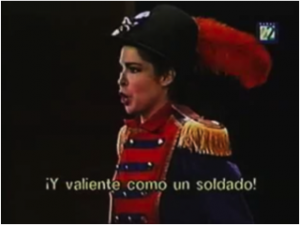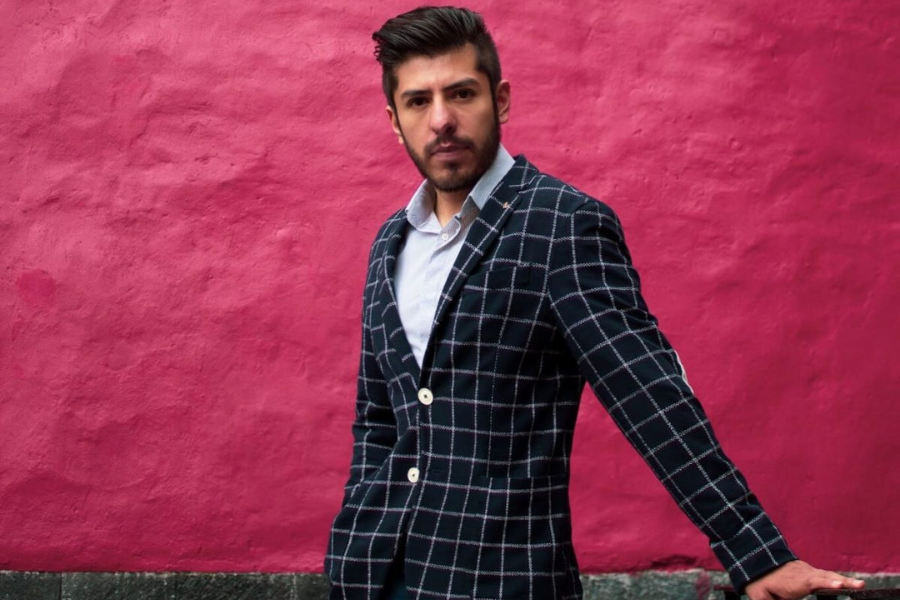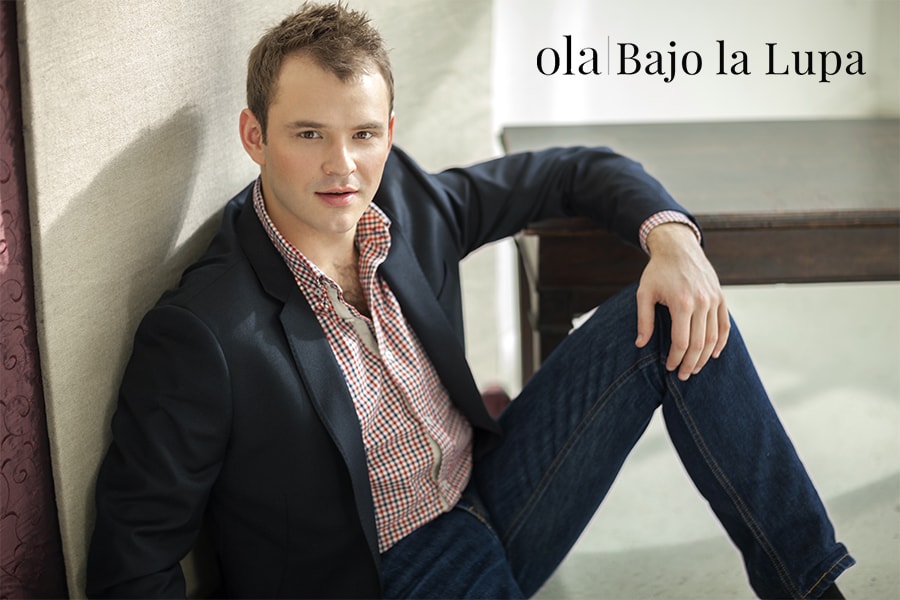Josué Cerón: “Me enamoré del canto por todo lo que ofrecía como preparación y proyección profesional”
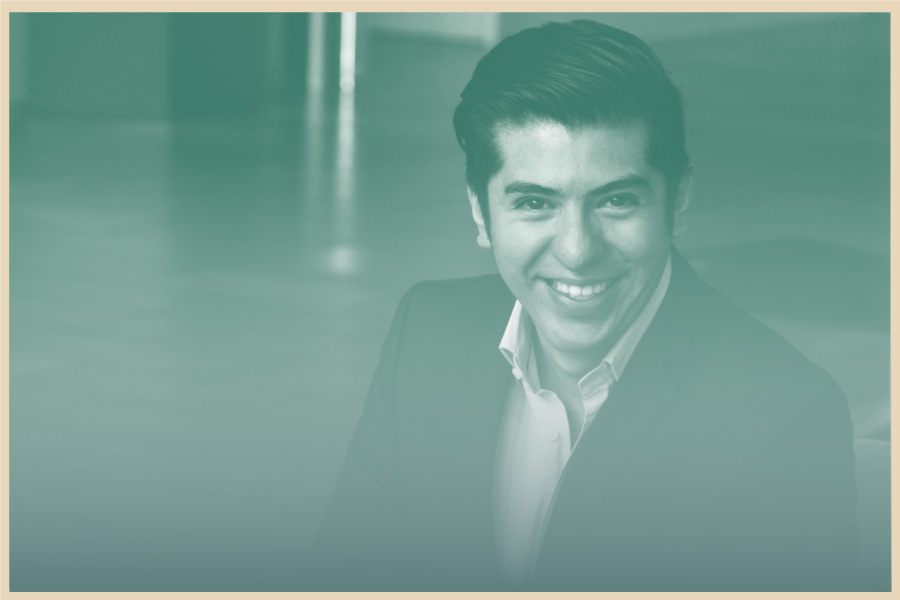
Conversaremos con Josué Cerón–artista miembro de Escena Digital– en De ópera y otras hierbas sobre ópera, arte y el panorama latinoamericano de las artes escénicas.
Barítono mexicano de estilo belcantista, Josué Cerón ha cantado en diferentes espacios que van desde el Palacio de Bellas Artes de Ciudad de México, el Conrad Prebys Music Hall en San Diego y la Lunenburg Academy of Music en Canadá, hasta variados escenarios internacionales en Estados Unidos, Italia, Japón, entre otros. Este artista ha interpretado tanto repertorios tradicionales, como música contemporánea del siglo XXI.
Revisa el perfil de Josué en Escena Digital AQUI
¿Siempre quisiste ser cantante de ópera? ¿Por qué?
No siempre, al principio de mis estudios musicales tenía el objetivo de estudiar dirección orquestal. Pero al poco tiempo descubrí el canto y me enamoré de él por todo lo que ofrecía como preparación y proyección profesional. Cada día que pasaba en el conservatorio me involucré más y más en ese terreno hasta que decidí quedarme ahí definitivamente.
¿Qué es lo que más te gusta de este arte?
El proceso de aprendizaje y de ensayos para un montaje nuevo, ya que es la parte de mayor reto y satisfacción, porque significa descubrir un mundo nuevo; no importa si el título ya lo he cantado antes, siempre hay algo que descubrir en la partitura y en el libreto.
¿Cuál es tu espectáculo favorito?
La ópera sin duda. Muchos títulos que no alcanzaría a enumerarlos. No obstante, mis favoritos versan en aquellos donde el teatro está tan enlazado con la música que te transportan a esa ficción como si fuese realidad.
¿Qué compositor o compositora que podrías escuchar todos los días?
Johann Sebastian Bach que, aunque no compuso ópera, sí tiene muchísima música vocal. En él encuentro un balance perfecto entre belleza y perfección técnica. Sus obras son de una complejidad elevada en lo musical, llenas de contrapuntos, armonías arriesgadas, ornamentos; sin embargo, están construidas de tal forma que lo estético jamás demerita: la belleza de esas melodías son ejemplares.
¿Puedes mencionar obras de repertorio latinoamericano?
Me encantan las óperas de Daniel Catán. El maestro tenía una intuición muy desarrollada para seleccionar libretos atractivos, con historias que se pudieran adaptar perfectamente a su lenguaje musical, dando como resultados títulos muy exitosos como Salsipuedes, Florencia en el Amazonas y La Hija de Rappaccini.
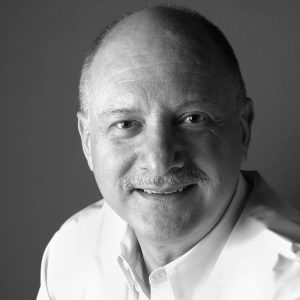
CC: América Iber Música
¿Qué artista latinoamericano ha sido un buen embajador de nuestro continente en el mundo?
A mi parecer, Juan Diego Flórez ha sido uno de los de mayor relevancia. Dejó muy joven su tierra natal Perú para llevar el nombre de su país y su continente muy en alto por el mundo. Lleva más de 20 años de carrera internacional ininterrumpida en un nivel de super estrella pero siempre reconociendo sus orígenes: no hay concierto o recital donde no incluya piezas en español, donde él mismo se acompañe y se sienta orgulloso de ser latino.
¿Qué obra latinoamericana te gustaría interpretar?
Hay una ópera que desde que la primera vez que la escuché me llamó la atención muchísimo. Lleva por nombre The visitors, compuesta por el mexicano Carlos Chávez. Fui testigo del estreno definitivo en el año 1999 en el Palacio de Bellas Artes. Para mí fue un descubrimiento por el lenguaje musical que Chávez utilizó. No creía lo que escuchaba, eran sonidos nuevos para mi pero que me maravillaban a cada compás que pasaba. Desde entonces no se ha repuesto, así que ahí hay una buena área de oportunidad para las compañías de ópera.
¿Cuál es tu teatro preferido?
La Scala de Milán para mí es el teatro más emblemático no solo de Italia, si no de Europa. Ahí se estrenaron óperas emblemáticas de Rossini, Donizetti, Bellini, Verdi, Puccini, etc. que son parte del repertorio tradicional de hoy en día. La energía que impera en sus paredes está llena de toda esa tradición. El estar ahí significa conocer y vivir la génesis del arte lírico romántico en toda la extensión de la palabra.
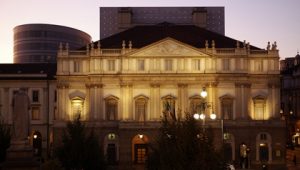
CC: Teatro Scala de Milán.
¿Cuál consideras que es tu mayor logro profesional?
Haber podido debutar profesionalmente muy joven (a los 22 años) en un papel principal, que fue la puesta en escena de La Hija del Regimiento en el Palacio de Bellas Artes (2004). La invitación llegó pocos meses después de haberme hecho del segundo lugar en el Concurso Nacional de Canto “Carlo Morelli”. Fue un sueño hecho realidad; un evento que, sin esperarlo, llegó y alegra mis días hasta hoy. Apenas en febrero del 2020 hicimos una reposición en forma concierto de estas funciones, con el elenco original.
En esta foto, estoy con el maestro Enrique Patrón de Rueda, director concertador de aquellas funciones de “La Hija del Regimiento”
